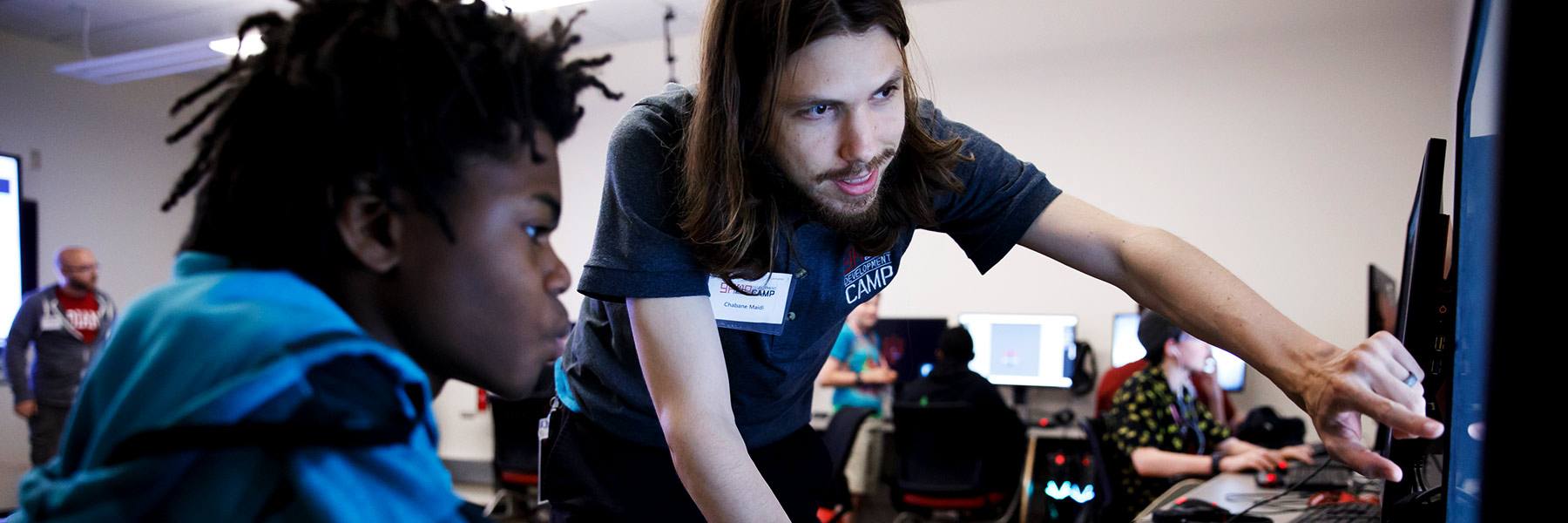Description of the video:
Video fades in.
A Cinema Academy student applies costume makeup to another student's face.
An instructor sits with arms crossed and stares off-camera to the right, speaking.
Camera pans to the left over Cinema Academy students.
Three students set up a camera.
Cinema Academy instructor addresses a room of students.
A group of students help a classmate put on a motion capture suit.
Motion capture footage of two avatars is displayed on a computer monitor.
A student holds a light for filming on set.
Three students laugh while watching a film screening in a theater.
Two students discuss while standing behind a camera.
A bright light shines over the shoulder of a student carrying a camera.
Two students dressed in motion capture suits face each other with fighting stances.
A student views a motion capture avatar on a computer monitor.
The camera focuses on a student behind a camera.
The focus shifts to two students standing behind a film set modeled after a bar.
Information page fades in. "The Media School Cinema Academy. Scholarships are available. Learn more and register now at go.iu.edu/mediacamps."
Fade to black.
The Cinema Academy provides in-depth experiential learning opportunities for student filmmakers of all calibers and interests. Students spend the week on campus hearing from filmmakers, attending film screenings and creating their own short films.
Learn more about the Cinema Academy


